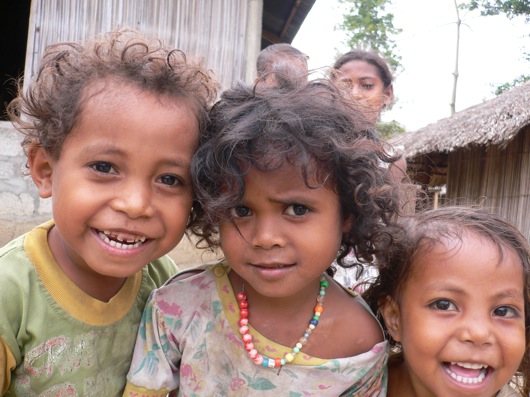Women in the World: A bit of theory
By Joanna Francis So today in the Women in the World column, I’m going to get a bit theoretical. Because it’s easy when writing about women in other countries - particularly developing ones - to become a bit clichéd. There’s a romantic notion associated with working overseas in developing countries… a connotation of selfless altruism, beautiful children, women in colourful fabrics and exotic landscapes. I was caught up in it myself, I must admit.
 From seeing celebrities on World Vision television advertisements at an early age, I was taken with the romanticism and adventure of it all and wanted to be a part of it.
From seeing celebrities on World Vision television advertisements at an early age, I was taken with the romanticism and adventure of it all and wanted to be a part of it.
The reality of course, is very different. And well-meaning foreigners going in to countries with dreams of saving the world can actually have a negative impact if care is not taken. Projects that work with women, particularly on creative enterprise, can be particularly vulnerable.
In the past, gender issues have been addressed by international organisations as a bit of an “add on”. Issues faced by women were stereotyped and simplified and the root causes of inequality were often ignored. All too often, programs for income generation were introduced without taking into consideration the already huge workloads that women undertook within their families and communities. The ‘triple role theory’ describes women in the developing world as doing reproductive work (raising children), productive work (paid and volunteer labour) and community managing work (such as managing water resources, health care and education).
 Looking at women’s work within such a framework, helps to avoid seeing women’s issues in isolation and instead focus on gender relations, the way they interact with all aspects of community life and helps to ensure they are included in all stages of developmental processes.
Looking at women’s work within such a framework, helps to avoid seeing women’s issues in isolation and instead focus on gender relations, the way they interact with all aspects of community life and helps to ensure they are included in all stages of developmental processes.
It also helps organisations which aim to introduce creative enterprise to ensure that they are not adding to the existing workload of women, and not complicating their lives and relationships further. There can easily be unintended consequences such as family tensions, neglect of other duties, community upheaval etc that need considering. And it sounds silly to say it, but women need to be not only included but to lead the planning of any development projects. Unfortunately, this doesn’t always happen.
Now my apologies if that’s all sounding a bit dry. But I think it’s important when talking about these issues and looking at examples of women in the world doing creative things, that we think a little about the politics behind it. And now on to the fun stuff… next month! We’ll look at a few great examples of when such projects are done well and when they are led and run by the women involved. See you then!
Photos by Vincent Puech
Joanna Francis spends most of her time hanging out with her 18 month old son. But she also works for a children’s foundation and has recently started her own little business making baby quilts. It goes without saying that her house is a mess. In the past, Joanna has worked as an aid worker in several developing countries, and is passionate about the rights of women and children. You can visit her and her blog at www.miettehandmade.com

